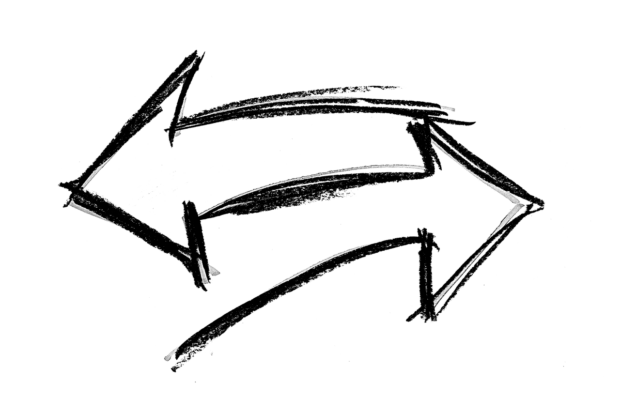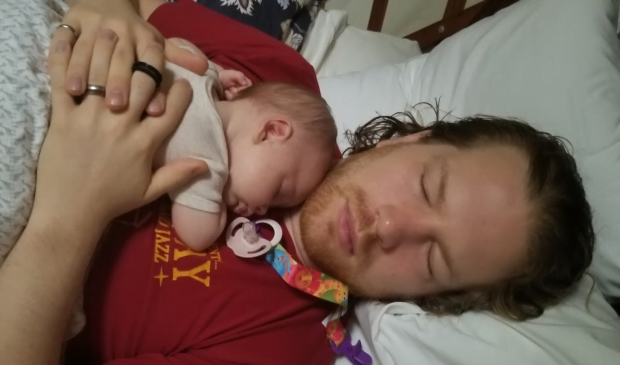
When I started at Cloudflare, I had high hopes of becoming a “safe pair of hands” – a rugby metaphor used by one of my Georgetown MBA professors. He encouraged us all to become a trustworthy and reliable person to our customers and employers. To be the person that could be entrusted with a difficult problem and deliver on it flawlessly. I got my first chance at that really early in my time at the company.
Within three weeks of starting at Cloudflare, or CloudFlare as it was known back then, I was asked if I could assist with the phone system for the entire sales team. Apparently, it was a convenient, albeit ragtag, system cobbled together from Google Calendar, Twilio, and 8×8. It allowed reps to route phone calls to their individual cell phones and gave the team a high level of flexibility around scheduling and assignment. Weekend shifts could be assigned in advance and scheduled as easily as placing a name on the calendar. It enabled our Sales team to work the way we needed to back then before we even had front-line BDRs.
After some emails and a lot of googling, I was able to successfully keep the phones ringing, and added documentation and redundancy to boot. From that point on though, I was the first person contacted when something went wrong. Every stray voicemail got an email sent my way. For every new class of sales reps and BDRs, every holiday, and before every company retreat, I had to update the phone system by hand to add new phone numbers for our new team members or adjust a holiday schedule.
This typically became background noise while I did my core job, which was own the technical sale and ongoing success of Cloudflare customers – a job which I loved. And as with anything you love, you want to spend a lot of time around it. I invited work into evenings and weekends. I let it take over my lunches, and I invited it into 2am calls with clients and even my own wedding rehearsal. (I just had to schedule my wedding during the 2016 Dyn outage.) Even two years after starting, I was still the call of last resort to make sure our now global Sales team could still take calls.
I did not quite know it at the time, but I was at the precipice of Burnout #1. I was physically out of shape and mentally beginning to fray. My relationship with my wife was strained by both the wedding planning and the stress I was constantly bringing home from work. Over the course of a few months, I was managing the PoC of a large and complex deal that required a healthy amount of SE duct-tape to make work. I was still player-coaching a small team and completely managing the recruiting process and pipeline in the Americas. All the while, I was still working with new prospective customers such as notable non-profits and politically-sensitive enterprises. And to top it off, at the end of every month, I was running a script I wrote that let the company send quarterly business reviews to customers by making the Salesforce API talk with internal tools. A script that took 2 days to run back then. (I hear it takes a week now). And through all the accounts (twice as many as our average SE), the hiring phone screens, and the scripting, through it all, I was still on the hook for the phones.
Account Distribution at the time
102 – Me
86 – SE 4
64 – SE 3
52 – SE 1
47 – SE 2
21 – SE 5
So, as you can expect, there was a recovery from the first burnout. I was able to reduce my account load, at first just the more transactional accounts, but eventually some strategic ones. (I like to joke that I’ve handed off more value to other team members than some of our Solutions Engineers have ever even won.) Ultimately, I was able to re-prioritize my health and carve out some gym time. I tried to push structural changes so no one else would have to quite suffer as much as I did when they got too many accounts, let alone too many strategic accounts. And, most importantly, after a strongly worded email to my bosses, I was finally able to hand off phone duties to the Sales Ops team.
“… we are way too big of a company for me to be the call of last resort for the entire sales phone system. We are no longer a sales team of a dozen people. The phone system needs to be owned by Sales Ops and IT with proper runbooks, maintenance and monitoring. The fragility and scaling of the current system needs to be weighed against the flexibility currently provided. Overall, this is no longer a one-person problem, but it still feels like it is being treated that way.” — Strongly worded email
So, in many ways, I lightened my load and re-balanced my life. But, I couldn’t help but shake a key feeling that is a common cause of burnout – loneliness. At the end of it all, I still felt like I had little in the way of help, support, or even recognition. I had to do it all alone. I had to write the code alone. I had to own customer engagements alongside team members that were eager (and even encouraged) to hand things off to the ‘expert’. I felt so much weighed on me, from our largest customer’s happiness to making sure quarterly reviews could even be sent to our customers. I was supposed to solve AE problems, Success team problems, customer problems, Sales Ops problems, and yet as I told my leadership a couple times during this phase, no one was coming to me and offering to solve my problems.
“Completely agree that this should be operationalized and taken over by IT. I expect you can sort this out?” — The 1-sentence response from my boss to my strongly worded email asking for help.

And so the next phase began, I was able to solve my problems at an individual level and finally offload some operational work including the phones; however, no major structural changes were made – no adjustments for post-sales or strategic accounts. Our Solutions team was still expected to do everything, including solve their own operational issues. It was becoming very obvious that morale was slowly starting to drop among the team. And even then, I felt partially responsible to help fix that morale drop, probably because I was the first person from Cloudflare that many of them talked to during the hiring process.
So roughly a year later, to the date, these feelings culminated in Burnout #2. I was still doing post-sales work for one of our more complex partners, and at the same time I was helping close our partnership with IBM Cloud. Once again, my account team was more than eager to hand things off to me as the ‘expert’ to sell and implement the deal. After being thrown under the bus a few times, I felt like I was just re-living my experience from the year before. Burnout deja vue.
At the absolute peak of this, I actually had another colleague earnestly ask me, “Are you okay?” It felt so weird to actually have someone ask me that. I was on the verge of tears from the sheer humanity of it. I was obviously not okay, but I was able to provide the semi-honest response of “Getting better.” From that point on, I knew nothing was going to be made better, and I was fighting a futile battle. Nothing was going to change about the toxic hero-culture that existed, I had to make my own change.
> There is a certain poetry of talking about new opportunities in a room called “409 – Conflict”
So, finally, mid-December, I asked to change teams. I was told to try to have a firm alternative by the 2nd week in January with a hopeful transition by Q2. (Yet again, I had to solve my own removal from the team.) Unfortunately, many of my early transition hopes did not have headcount or no longer had the resource need. Keep in mind, I thought I was able to safely change teams, so I was not looking at other companies. Our Head of People even stated in our Q1 kickoff that the company would help you find your dream role at the company. But, after a month of trying without success, I was told for the first time that my team change deadline was actually an ultimatum, and I now had only 2 months left. I was essentially told I had to find a new team, or I’d be let go. You can imagine my broken heart and the sudden onset of sleeping troubles. (And to add insult to pregnancy, my wife and I were actually 1-month into expecting our first child at this time.)
It suddenly became clear that it didn’t matter how much revenue I had brought to the company. It didn’t matter how many perfect NPS scores my customers provided. It didn’t matter how much duct-tape I made to simply make things work for my customers that demanded more, or how many gaps I covered for the entire Sales organization. It didn’t matter that I had helped administrate Salesforce, build databases for Product, helped AEs and BDRs answer the phones or helped CSMs send out every QBR. At the end of it all, the company was apparently comfortable with firing me. It took a few walks around the block to come to grips with the dose of reality and combination of rage, hurt and despair I was feeling in that moment.
As time went on, I continued to deliver for my customers despite waking up at 4am every night running the worst case scenarios through my head. Could I find a new job fast enough? What about healthcare for my pregnant wife and future daughter? I eventually asked if the ultimatum could be removed. It served little purpose. It was demotivating as all hell. It wasn’t necessary to make me change teams faster. I already had that motivation. A motivation that was only strengthened by the fact that the ultimatum was put in place to begin with. And unfortunately, over drinks at MoMos, my request was denied. The ultimatum would stand, and I had to seriously answer for myself why I still wanted to work at such a place. (How to answer that question may become a future blog post.)
I fortunately found a new team within Cloudflare, but I lost a lot in the search. I used to absolutely love my job. I took so much pride in it. I treated every customer like they were my own, and the company like it was mine. (I may not have founded the company, but I felt like a founding member of the Sales team.) From satisfied customers to keeping the phones ringing, I loved the impact I had across the organization. I was proud of the work I’d done. I was proud of being first-name@. But after two burnouts and some personal growth, Cloudflare became what it should have always been – just a job.
Ultimately, what saved me the most was the birth of my daughter. Disconnecting during parental leave became a long-overdue break to re-contextualize my relationship with work and reassess where I found fulfillment. In the weeks prior to leave, I was able to get off the front line and make myself non-essential for the first time in years. In the precious moments with my newborn daughter, I was able to diversify my sources of joy and fulfillment. And in coming back to work, I was able to be much more selective of where I was helpful.

The most important customer in my life
So, I’ve written and edited this over the past few years mostly for my own catharsis and my own understanding, but hopefully it can be a cautionary tale to the next wave of young, driven startup employees that may be all too eager to get sucked into the swirling vortex of a rocketship’s exhaust. A fulfilling job can be like any drug – exhilarating, intoxicating, and enthralling. And like any drug, you should always avoid the pitfalls of addiction and abuse. Take my word as a previous junkie (or the words of others).
Below are some tidbits I took from my journey:
- Diversify your sources of joy in life.
- Doing more does not equate to doing better.
- Time is your only true currency – invest it wisely.
- Know your limits. More importantly, enforce them!
In general, I’ve always tried to live a balanced live – never too much this, or too much that. So, it was really difficult for me to recognize when my own boundaries were being eroded away one little justification at a time. Looking back, it was odd it took me so long to realize my predicament. Hopefully, this post can act as a cautionary tale so a few others can avoid falling into a similar trap by enjoying family & friends, knowing your limits, and defending your personal time vehemently.
“Nobody on their deathbed has ever said “I wish I had spent more time at the office.” — Rabbi Harold Kushner


